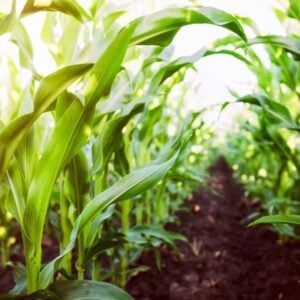The Global Agriculture and Food Security Program (GAFSP) has made its first funding allocation under its new private sector financing window, granting $14 million to the African Development Bank Group (AfDB). The funding includes de-risking capital aimed at mobilizing $200 million in private sector investments to strengthen food security in low-income countries. GAFSP supports projects across the agriculture value chain in the world’s poorest nations through grants, concessional finance, and technical assistance.
Launched in 2024, GAFSP’s Business Investment Financing Track blends grants and concessional finance with resources from multilateral development banks to attract private sector investments for smallholder farmers, agribusinesses, and agricultural start-ups. The first allocation under this track will establish the Agro-Inputs Risk Sharing Facility, a $200 million fund hosted by AfDB. Of this, $10 million will serve as de-risking capital, while $4 million will be dedicated to technical assistance. The facility will encourage private-sector lending for small- and medium-sized agricultural companies in Ethiopia, Uganda, Tanzania, Malawi, and Zambia by incentivizing local banks to provide credit to agro-input suppliers.
Smallholder farmers and emerging agrifood businesses in fragile and low-income countries often face challenges accessing credit and investment capital due to high perceived risks. The Agro-Inputs Risk Sharing Facility, implemented by the African Trade & Investment Development Insurance, will address these barriers by providing guarantees to financial institutions, encouraging commercial banks to lend to underserved agribusinesses. This risk-sharing mechanism is expected to enhance the flow of finance into the agricultural sector.
According to Natasha Hayward, Program Manager for GAFSP, this initiative showcases a collaborative model that blends donor, multilateral, and commercial finance to overcome financing risks and multiply private investments. The funding will help scale access to certified seeds, organic fertilizers, soil enhancers, mechanization, and other essential inputs, strengthening agribusinesses’ resilience to climate impacts such as heat and water scarcity. Over 1.5 million smallholder farmers and 500 agro-dealers and cooperatives are expected to benefit.
Philip Boahen, the AfDB’s GAFSP Coordinator, emphasized that targeting agro-input dealers and smallholder farmers will fortify the entire agricultural value chain—from input supply to market access—building food systems capable of withstanding environmental and market shocks. This initiative supports Africa’s broader commitments to food system transformation, including the Comprehensive Africa Agriculture Development Programme and the Kampala Declaration on Accelerating the Implementation of Africa’s Food Systems Transformation.







